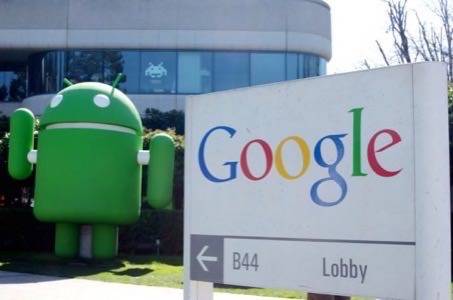
Android now holds 75% share of the smartphone market, according to new numbers from IDC, while Apple in the most recent quarter had 15% share. That means Android is outselling Apple five to one. Last quarter Android was outselling Apple only (only!) four-to-one, when they had 68% and 17% share, respectively.
Android Is No Longer The Plucky Underdog
You know what blows my mind? Despite these numbers, tech bloggers keep talking about Apple as a market leader and portraying Android as a plucky underdog that’s trying to catch up.
Are you kidding me? Look, when three out of four phones sold worldwide run your operating system, I think it’s safe to declare victory.
The lack of respect must drive Andy Rubin nuts. He’s the co-creator of Android, the guy who runs the Android business inside Google. His relatively tiny team of developers has done something truly amazing. They’ve come of out nowhere and created a smash-hit product in a market (mobile computing) that represents the biggest and most important opportunity in our lifetime.
Android sales grew 91% last quarter, nearly double the rate of the overall smartphone market.
This is an incredible feat. The folks on the Android team should be taking a victory lap. They should be hailed as heroes.
But here in the U.S., at least, people still talk about Apple as the market leader.
Apple Is Now Stuck Trying To Catch Up
Sure, there was a time when Apple was the top dog in smartphones, and Android was way behind both in terms of market share and in technology.
But those days are over. Apple now is trying to keep up with Android, and not always with much success. With Maps and with Siri, Apple now lags way behind Google’s maps and voice applications.
The user interface on iOS looks dated and tired compared to the latest version of Android. (Which may partly explain why Apple just booted the guy who was in charge of running iOS development.) And the iPad Mini was a follower in the small-tablet space, not the leader.
In terms of market share… at this point, Apple is a niche player. I’m sorry, but that’s what you call it when you have one-fifth the share of your main rival. And does anyone really expect that Apple’s share of the smartphone market will ever be substantially better than it is today? Of course not.
From PCs To Smart Phones – Deja Vu?
If this sounds familiar, it’s because we’ve seen this movie before, only in the original version Apple was losing out to Microsoft in personal computers. Now Google is using the same game plan in smartphones: Come in late with an alternative product and gobble up market share by licensing the OS to loads of hardware makers instead of trying to do everything yourself.
Apple fanboys used to swear up and down that this would never happen. By some kind of magical thinking these people convinced themselves that somehow the smartphone market was different, or Apple was different – or something.
But consider this: Apple’s 15% share in smartphones is only a little bit better than the 12.5% share IDC says Apple holds in U.S. PC market.
That’s right. Apple’s share of the worldwide smartphone market has fallen almost as low as its share of the U.S. personal computer market.
Nobody considers Apple a market leader in PCs. So why do they view Apple as a leader in smarphones?
You could almost argue that Apple is better positioned in PCs than in smartphones, since in the U.S. PC market Apple’s share isn’t that far behind the two market leaders – HP, which has 26%, and Dell, which has 20.7%,
– whereas in smartphones Apple is getting smoked. (Ever wondered why Apple is suing everybody in sight? Yeah. That’s why.)
To be sure, Apple is one company selling a few smartphone models, while Android runs on hundreds of devices from dozens of handset makers. So maybe it’s not a fair fight.
And yes, Apple still rules in the tablet market. But even there its share has slipped dramatically over the past year, from 81% to 52%, according to the Pew Research Center.
From Market Share To Profit Share?
Most important, Apple still grabs the lion’s share of the profits in the mobile phone market, but here too Apple’s share has declined since last year, according to analyst Horace Dediu of Asymco, who tracks this statistic.
Thing is, Google with Android isn’t trying to make a profit in smartphones. It’s just trying to get as many handsets into the world as possible.
Apple and Google are playing different games – one about profit, one about market share. A generous description would be that both companies are winning.
Nevertheless: Android has 75% market share. That’s up from 4.7% in 2009, and less than 1% in 2008.
Three years ago, in November 2009, when I wrote an article about Android for Newsweek, Gartner was predicting that by 2012 Android would have slightly more market share than Apple.
A year later, in October, 2010, when I wrote a Newsweek cover story about Android, I cited IDC predictions that Android would have 25% share by 2014.
Back then those predictions seemed pretty daring. Now here we are, in 2012, and Android has 75% share.
Andy Rubin seems like a pretty low-key guy. Nevertheless, if you see him out spinning donuts in a parking lot at the Googleplex, cut him some slack. He’s earned it.
Image courtesy of Shutterstock.

















